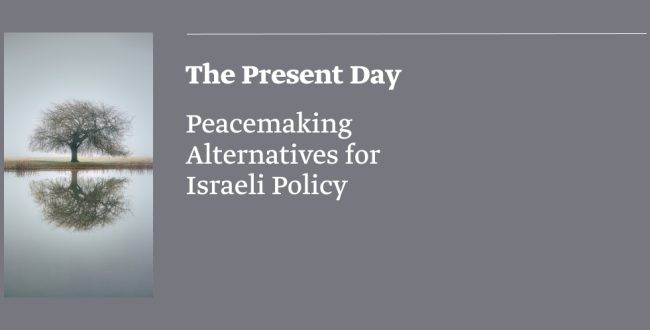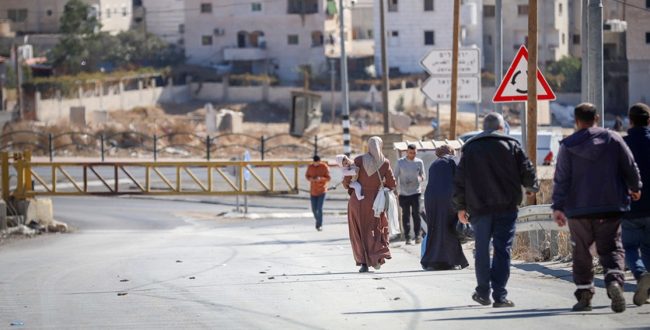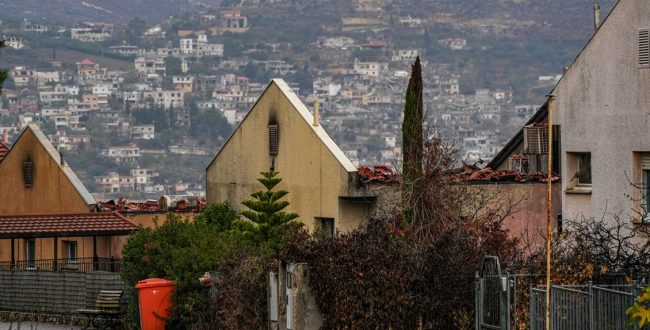The events of the recent month continue revealing the strategic lows Israel has sunk to under its current far-right government. While Gaza remains central to the debate, both in Israel and globally, we dedicate this monthly publication to the other two fronts: northern Israel and the West Bank. The Upper Galilee remains abandoned to Hezbollah rockets, with around 100,000 Israelis displaced. In the West Bank, settler militias, in open cooperation with or under the blind eye of the IDF, are tirelessly uprooting Palestinian communities (around 1,000 Palestinians in 18 communities, according to B’Tselem), pushing them further into the small urban enclaves of Areas B and A.
One Israeli official who epitomizes the link between the catastrophe in the north and the ongoing illegal transfer of Palestinian populations in the West Bank is Betzalel Smotrich, Israel’s Minister of Finance, who also serves as a minister in the Ministry of Defense, de facto managing the Civil Administration of the West Bank. Smotrich acts tirelessly to push the Palestinian Authority to bankruptcy. At the same time, he threatens Hezbollah and even Iran with direct war, rejecting any option for an agreement in Gaza that would pave the way for normalization in the north and allow its Israeli inhabitants to finally return to their homes. Most reasonable observers would agree that such a strategy of war on all fronts is unsustainable for Israel. We suggest, however, that this strategy is entirely reasonable from the point of view of Israel’s far right. The far right cannot afford to lose a war. From the perspective of Smotrich and Minister of National Security Itamar Ben-Gvir, war is a deep pool of resources and opportunities—for more landgrabs in the West Bank and perhaps also in Gaza, and for further instilling their values of Jewish suprematism .and militarism in Israeli society
Political agreements may portray Israel’s surroundings as more rational, sober, and well-intentioned than Israeli rightwing politicians want Israelis to believe
Already popular, Ben-Gvir gains more support in the polls as the war continues. Smotrich, on the other hand, lags behind, yet as a politician with superb institutional acumen, he is restructuring the Israeli military and civilian governance in the West Bank in order to demolish more Palestinian communities and further expand Jewish settlements. His political partner, Orit Strook, Minister of Settlements and National Missions captured this sentiment recently when she declared, “We live in a time of miracles”. Why stop the war then?
There is, however, another aspect to hostage deals, political agreements, and other diplomatic rather than violent actions, which we at the Forum for Regional Thinking (FORTH) and the Van Leer Jerusalem Institute (VLJI) find relevant to our work in Israel. Political agreements may portray Israel’s surroundings as more rational, sober, and well-intentioned than Israeli rightwing politicians want Israelis to believe. In other words, it is the very concept of a settlement with Palestinians or Arabs in general that is anathema to Benjamin Netanyahu and his allies in the far right (note his reaction to the Maritime Agreement with Lebanon in late 2022). In our recent Hebrew publications, we explain why a political agreement is the only way out of Israel’s cul-de-sac and what a sober pro-agreement policy on the part of the opposition may look like.
Alternative to a Regional War
The implications of an all-out war with Hezbollah and the need for a political agreement as an alternative are evident from Israeli officials’ own assessments. In 2020, a group of former officers under the auspices of the Israel’s Institute for National Security Studies compiled a comprehensive report on the potential ramifications of war with Hezbollah. The English-language report reflects the consensus at the time, that Israel’s major security threat came from Lebanon.
According to the report, Hezbollah’s arsenal was around 150,000 missiles and rockets, including an unknown number of cruise missiles and drones (to which the authors dedicated a classified chapter). Not without understatement, they predicted that “the next northern war will be different and more difficult than its predecessors”. One important warning in the report was that Israel’s state-of-the-art missile defense systems would be diverted to protect assets such as army bases, airports, and gas reservoirs, exposing the civilian population to unprecedented harm.
Given that state of affairs, one striking recommendation of the report was that Israel’s exit strategy from such a war involved attacking Lebanon. In the authors’ words, “Israel should strive to attain an external demand for an end to the hostilities by exacting a heavy price (striking infrastructures) from Lebanon, and Syria too—heavy enough to result in international pressure for an immediate end to the war” (pp. 76-77). The authors’ recognition that Israel cannot end such a war without destroying Lebanon is an unfortunate yet realistic analysis of the power balance with Hezbollah.
Unlike the prevailing image of Hezbollah as a fundamentalist Iranian proxy with irreconcilable ends, a more coherent and informed analysis of the organization is that of a multifaceted sectarian political movement that owns an army and is backed by Iran
In retrospect, nine months into Israel’s war in Gaza and four years after the report, it stands out as a relic from a bygone era. Back then, the Israeli hegemonic discourse suggested that Palestinians were a “piece of shrapnel in Israel’s behind”, a turn of phrase coined by former Prime Minister Naftali Bennet in 2013—something you can live with and is too risky to remove. What has unfolded since is a far cry from the report authors’ predictions, as well as Bennet’s unfortunate metaphor. Ultimately, the Palestinians initiated the attack, surprising even Hezbollah, which joined the war half-heartedly.
Another aspect missing from the report is a serious analysis of the Hezbollah’s motives, ideology, and general context. Unlike the prevailing image of the organization as a fundamentalist Iranian proxy with irreconcilable ends, a more coherent and informed analysis of the organization is that of a multifaceted Lebanese conservative and sectarian political movement that owns an army and is backed by Iran. This perspective is informed, among other sources, by Richard Norton’s authoritative history.
Hezbollah’s desire for the betterment of the Shia community in Lebanon comes before its covenant with Iran, and Norton uses Hassan Nasrallah’s public apology for his military operation in the summer of 2006, that sparked the Second Lebanon War, as an example for that. Hezbollah’s approach since October 7 supports this thesis: the organization is careful not to escalate the war, balancing its commitment to Iran, Hamas, and the Palestinian issue with its will to keep its status in Lebanon and refrain from an all-out war that would destroy the country. We have recently translated and reviewed several texts by Lebanese commentators, demonstrating the critical discourse against Hezbollah in the country. We conclude that a full-fledged war with Hezbollah would not strengthen these critical voices, but rather marginalize them.
The paradox of starting an all-out war against Hezbollah is that Israel’s strategy to demolish Lebanon will create a vacuum that will allow Hezbollah (and Iran) to accumulate ultimately more power in the country, not to mention other, more violent, chaos-driven Sunni Jihadi organizations like ISIS and al-Qaeda. In fact, this has been the historical pattern so far: Israel’s invasion of Lebanon in 1982, its withdrawal in 2000, and the 2006 war were crucial factors in shaping Hezbollah’s role in Lebanon today. Why would another full-scale round of violence change this historical course?
Signing an agreement with Lebanon now will allow Hezbollah to balance its internal and regional interests. Full-fledged war will lead to harsh criticism from its opponents in Lebanon, but in the long run, it would strengthen it
If Israel’s preferred solution for ending the war is to enter an agreement with Lebanon, signing one now is a much more reasonable policy than initiating a devastating adventure, possibly for the entire region. Our fellow Professor Oren Barak recently provided an analysis of the political alternative to war. Strong Lebanese sovereignty, Barak explained, was an Israeli asset, not a liability. And as our fellow Ghazi Abu Jayyab explained recently, this was the case with the Maritime Border Agreement signed in October 2022, during the Lapid government. This diplomatic step allowed Hezbollah to present itself as a powerful defender of Lebanese interests, rather than a reckless sectarian organization bringing destruction to its own people.
Similarly, signing an agreement with Lebanon now will allow Hezbollah to balance its internal and regional interests. Full-fledged war will lead to harsh criticism from its opponents in Lebanon, but in the long run, it would strengthen it, simply by being the last political movement standing.
The Fantasy of Reeducating the Palestinians
We have established that a political agreement with Palestinian and Lebanese actors (including non-militant ones) runs against the logic of the Israeli far right, for which every escalation is an opportunity, if not a miracle. One problem in accumulating enough political power to resist the right is that arguing that an ongoing war is not in Israel’s interest has little traction in the Israeli mainstream.
Recently, for example, a group of conservative professors from several Israeli universities released a plan to transform Gaza “from a murderous regime to a moderate society”. This document, now apparently a semi-official policy, argues that Israel should inflict “total defeat” on the Palestinians, akin to the United States defeating and later transforming Nazi Germany after WWII. We argue that this comparison is irrelevant, to say the least.
Gaza under Hamas is not a Nazi Germany capable of destroying much of the world, but a ghetto in ruins. Moreover, the report is written as if Israel has no responsibility for the situation in Gaza. As we have reminded recently, the Gaza enclave is an outcome of the 1948 war and the displacement of 200,000 Palestinians and the subsequent endless cycle of insurgency and counterinsurgency in that enclave. The complete disregard for this history is not only morally flawed but outright delusional, and thus dangerous to Israelis themselves. Israel has neither the moral ground nor the resources to teach the Palestinians a lesson in “moderation”, especially after officially abandoning any intent for reconciliation.
More than offering a practical plan, these experts’ report is yet another relic of Israeli thinking from the pre-October 7 era, when Netanyahu taught Israelis to think of themselves in imperialistic terms. Those days are gone. The atavistic addiction to this illusion, which obscures Israel’s true position and power regionally and globally, is a strategic threat in its own right. Such plans are used by Netanyahu’s regime to argue that it has a plan, thus prolonging the war. And yet they belong squarely in the realm of fantasy.
The complete disregard for this history is not only morally flawed but outright delusional, and thus dangerous to Israelis themselves
Unfortunately, Israel’s political center is unable to offer an alternative even with regard to negotiations with the Palestinians currently. The feasible alternatives to Netanyahu—from former Prime Minister Naftali Bennett to former Mossad chief Yossi Cohen, from Benny Gantz to Avigdor Lieberman—all declare that they would somehow win this war, rather than chart a meaningful political alternative.
What would a pragmatic Israeli political approach look like? We propose, for example, initiating dialogue with a respected Palestinian technocrat such as former Prime Minister of the Palestinian Authority Salam Fayyad, who has been calling for Palestinian unity since the beginning of the war. A brave Israeli opposition would call for the immediate release of popular Palestinian leader Marwan Barghouti from Israeli prison, thus demonstrating a sober understanding of Israel’s current strategic predicament.
Other suggestions, such as “educating” the Palestinians to peaceful coexistence, creating Hamas-free “bubble” zones, as Defense Minister Yoav Gallant suggests, or cutting clandestine deals with “local leaders”, are delusional. Israel needs political agreements to secure its future, and these are impossible without meaningful, legitimate Palestinian partnership. Other options are mostly ways of stalling, for the right to reap the fruits of war. At some point in the future, these may prove too poisoned even by their own standards.

















